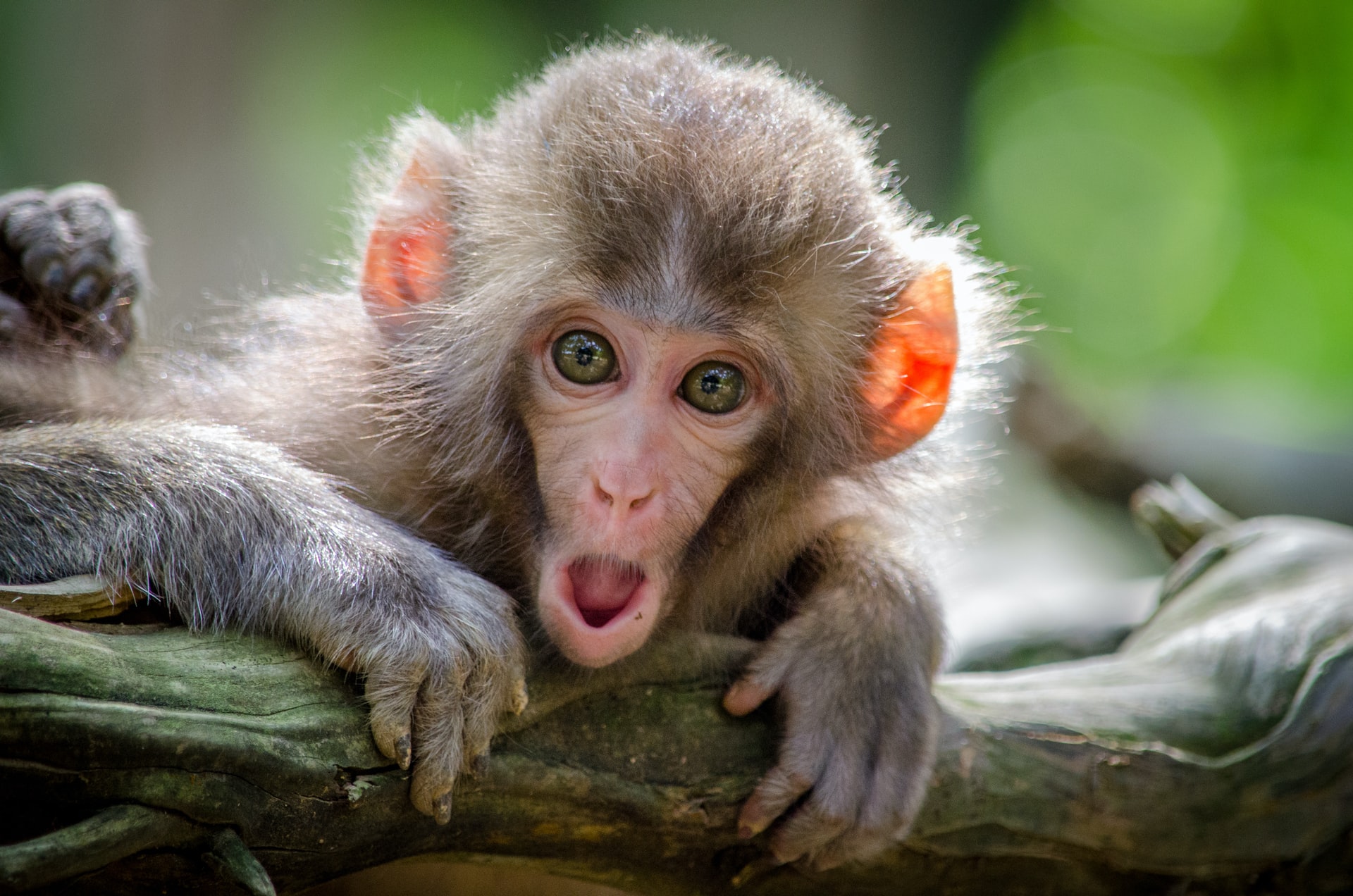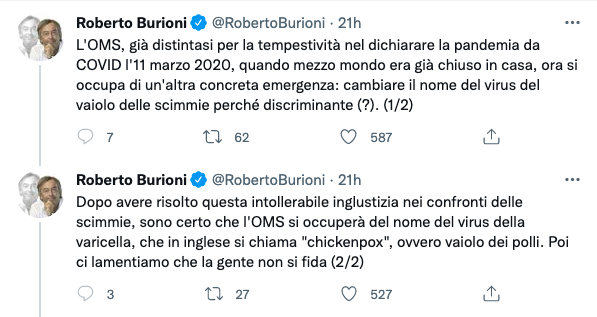WHO will change its name to monkeypox, that’s why

A group of scientists has asked WHO to change the name of the monkeypox virus or monkeypox as soon as possible to indicate the epidemic that is spreading around the world. The episode brings to mind what happened with Covid-19 (and arouses some controversy)
Soon the monkeypox virus, or monkeypox, will change its name. The decision comes following the denunciation of some scientists who consider the current denomination "stigmatizing" and "imprecise".
The change will be dealt with by the World Health Organization (WHO).
THE DEMAND OF SCIENTISTS
On Virological , a discussion forum for the analysis and interpretation of the molecular evolution and epidemiology of viruses, a group of scientists published an article entitled Urgent need for a non-discriminatory and non-stigmatizing nomenclature for monkeypox virus .
In the text, the authors use the name "hMPXV" to denote human infection and distinguish it from animal infection.
THE REASONS
The appeal to urgently change the name of the virus is due to the fact that experts consider it "inaccurate", "discriminatory" and "stigmatizing" due to the references to West and Central Africa, regions that give the name to the two different strains of the virus.
The authors, in fact, warn of "a growing narrative in the media and among many scientists trying to link the current global epidemic to Africa, West Africa or Nigeria" and criticize the use of photos of African patients. with smallpox injuries.
In this regard, the document reports, the Foreign Press Association in Africa has issued a statement urging the world media to stop using images of African people to highlight the epidemic in Europe.
OUR STATEMENT:
The Foreign Press Association, Africa registers its displeasure against media outlets using images of black people alongside stories of the #monkeypox outbreak in North America and the United Kingdom. pic.twitter.com/u32yWLELJg
– FOREIGN PRESS ASSOCIATION, AFRICA (@FPA_Africa) May 21, 2022
BECAUSE IT RISKS TO PASSING A WRONG MESSAGE
“The prevailing perception in the international media and scientific literature – reads the article – is that the monkeypox is endemic in the populations of some African countries. However, it is well established that almost all monkeypox outbreaks in Africa prior to the 2022 epidemic were the result of animal-to-human transmission and cases of prolonged human-to-human transmission have only rarely been reported.
As scientists recall, although the origin of the new global monkeypox outbreak is still unknown, “there is growing evidence that the most likely scenario is that cryptic human transmission across continents has been going on for longer than previously thought. ".
THE WHO'S RESPONSE
The response from WHO director general Tedros Adhanom Ghebreyesus was not long in coming. He said the organization is "working with partners and experts from around the world to change the name of the virus".
An announcement, the Dg said, will be made "as soon as possible".
COVID AND VARIATIONS
It is not the first time that WHO has decided to change the name of a virus to avoid discrimination. Even that of Covid-19, called in a derogatory way by former US President Donald Trump and his supporters "the Wuhan virus", was immediately renamed "Sars-Cov-2".
As well as the subsequent variants that derived from it. The adjectives "English", "South African", "Brazilian", "Indian" and so on, which indicated where the variant was first identified, have been replaced with the letters of the Greek alphabet in order not to stigmatize those countries or regions applying travel bans and other restrictions against them.
GEOPOLITICAL ISSUES
Indeed, after the letter Mu (a variant passed on the sly because it was considered "of interest" and not "of concern" according to the degrees attributed by the WHO) Nu and Xi were skipped.
The motivation, as WHO spokeswoman Margaret Harris explained to Corriere della Sera , has to do with two different reasons. Nu, in English, was too similar to “new”, meaning “new” and this would have created confusion in the English-speaking public; while Xi (now Omicron), in addition to being an extremely common surname, is in particular that of the Chinese president himself, which Beijing would not have particularly appreciated.
"Our guidelines dictate not to use names that could harm cultural, social, national, regional, professional or ethnic groups," Harris said.
BURIONI AT THE ATTACK
Regarding the WHO decision, virologist Roberto Burioni, professor at the Vita-Salute San Raffaele University in Milan, sarcastically tweeted:

This is a machine translation from Italian language of a post published on Start Magazine at the URL https://www.startmag.it/sanita/ecco-perche-oms-cambiera-nome-al-vaiolo-delle-scimmie-monkeypox/ on Thu, 16 Jun 2022 08:34:21 +0000.
